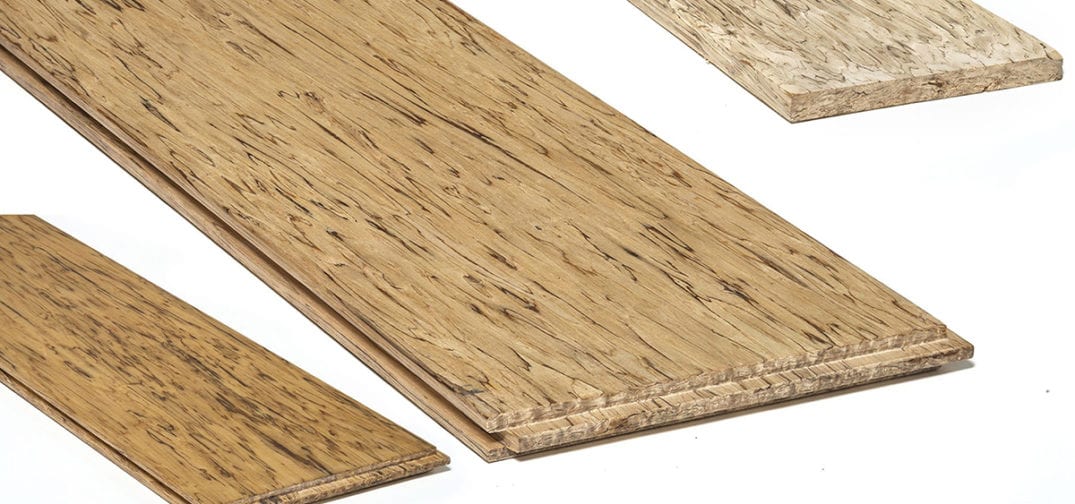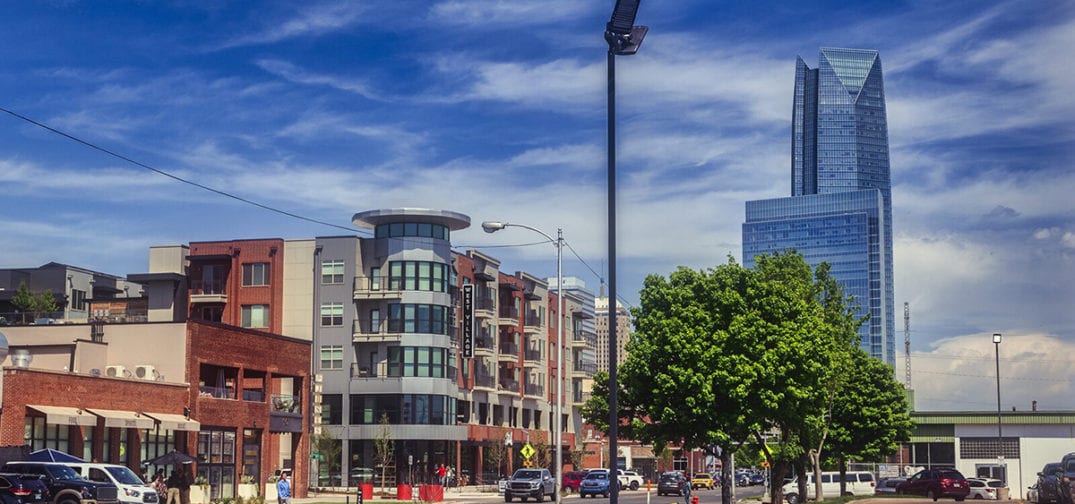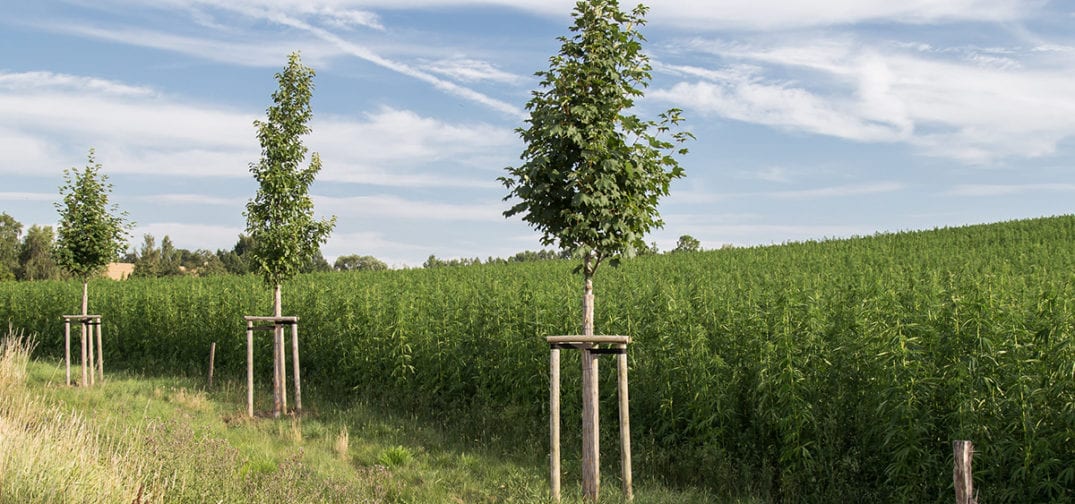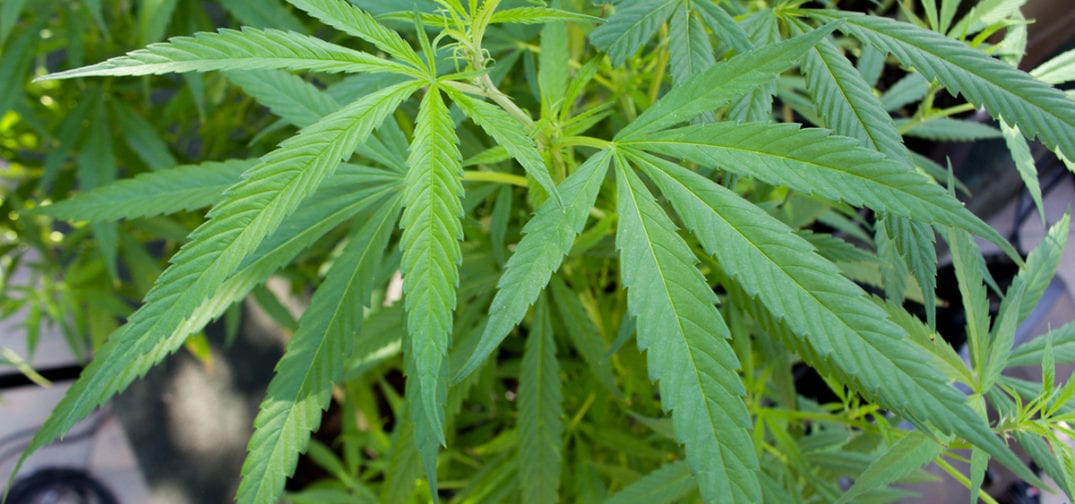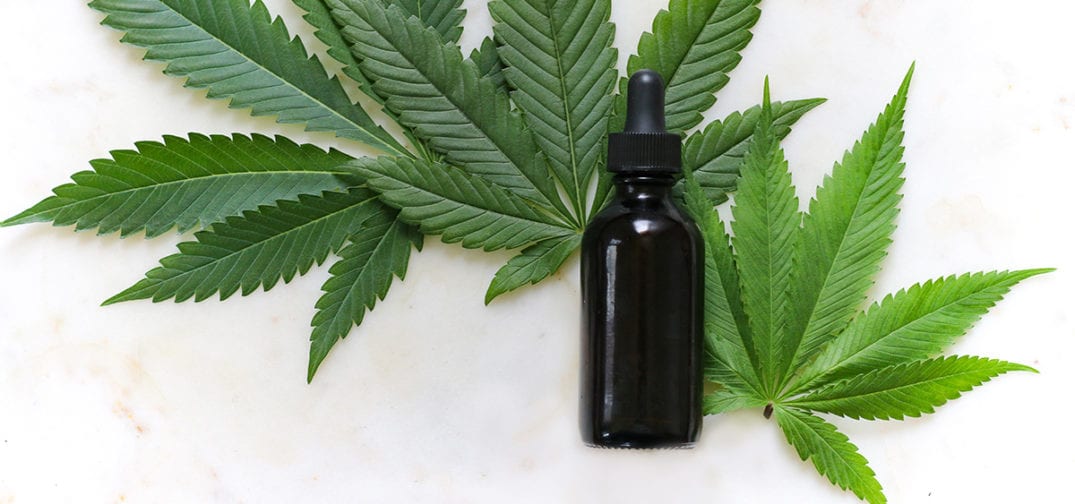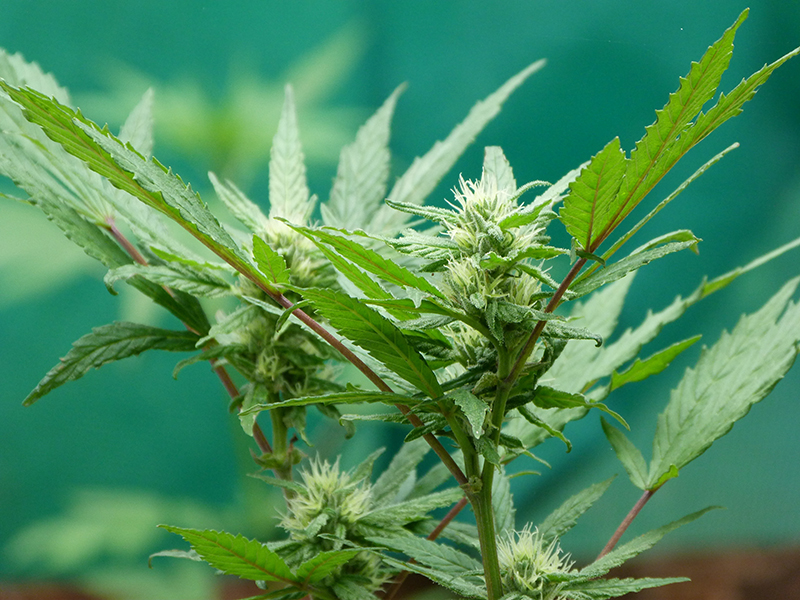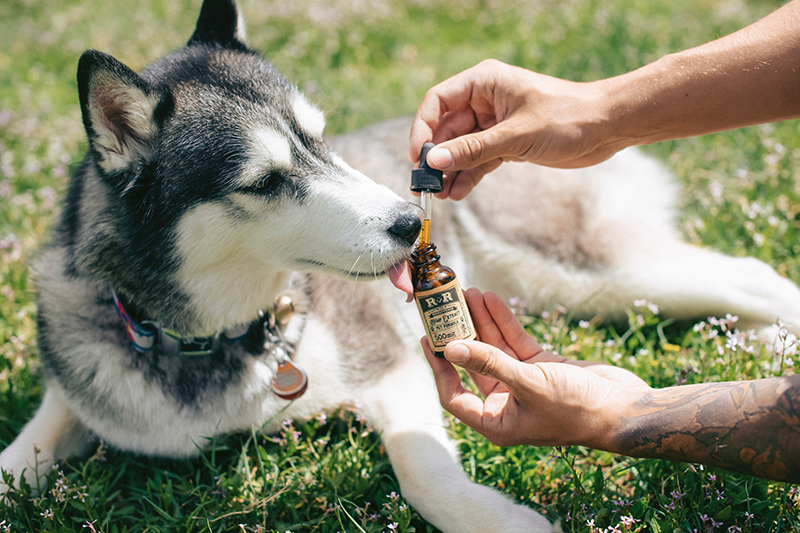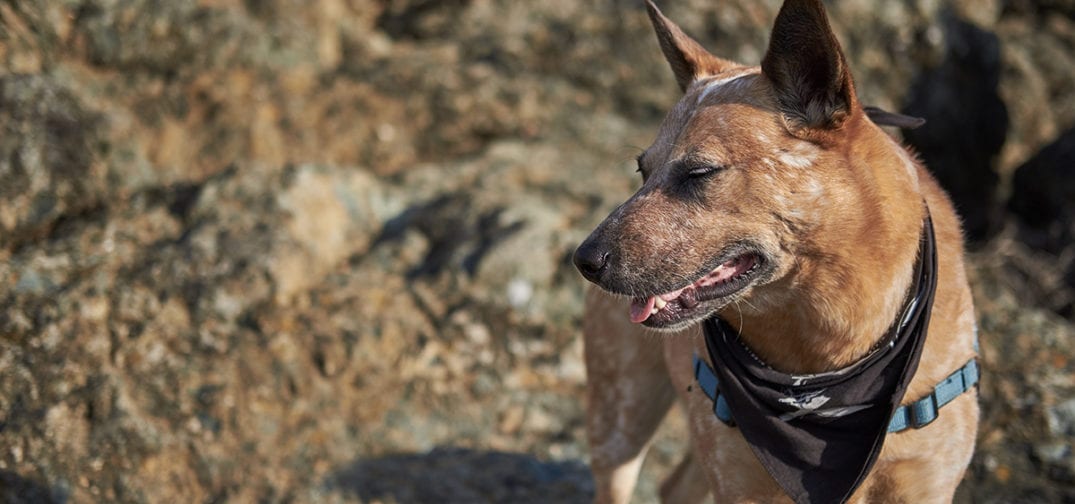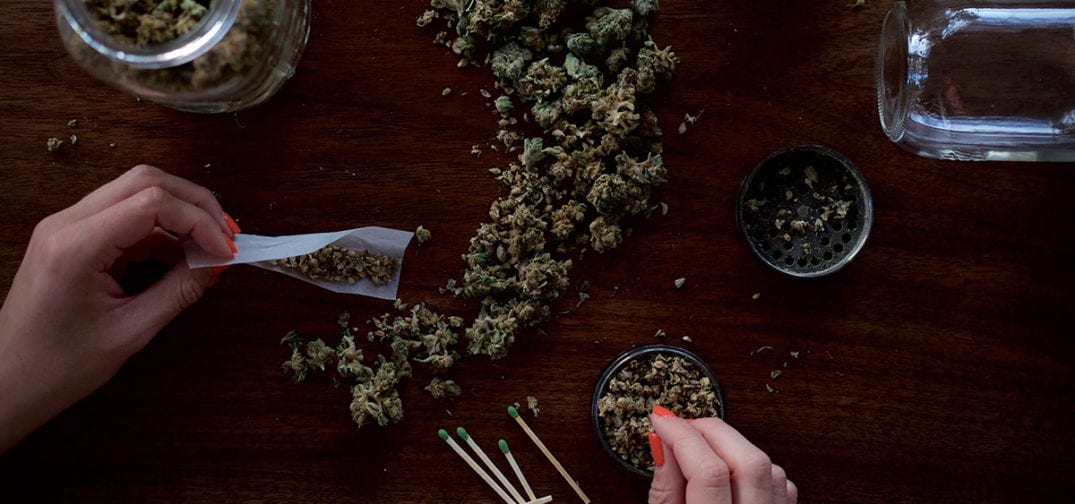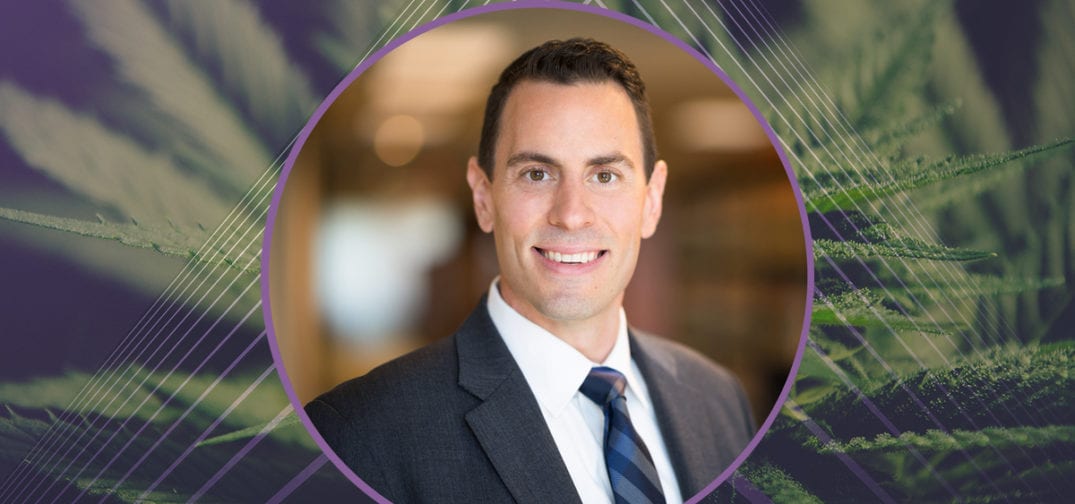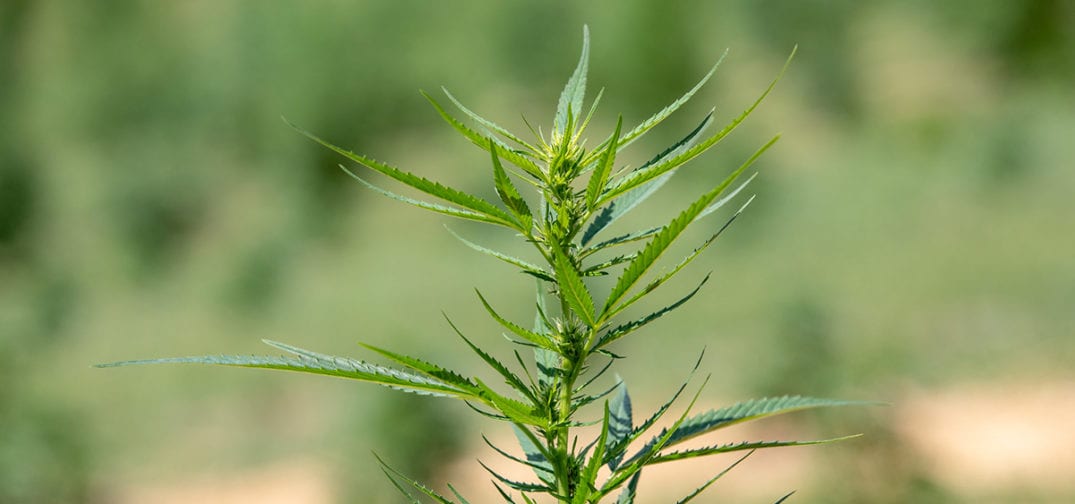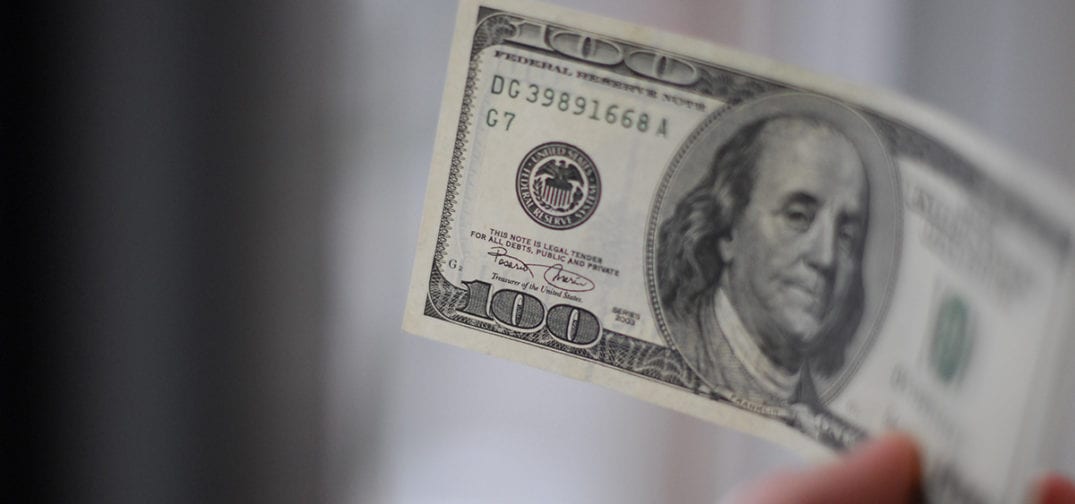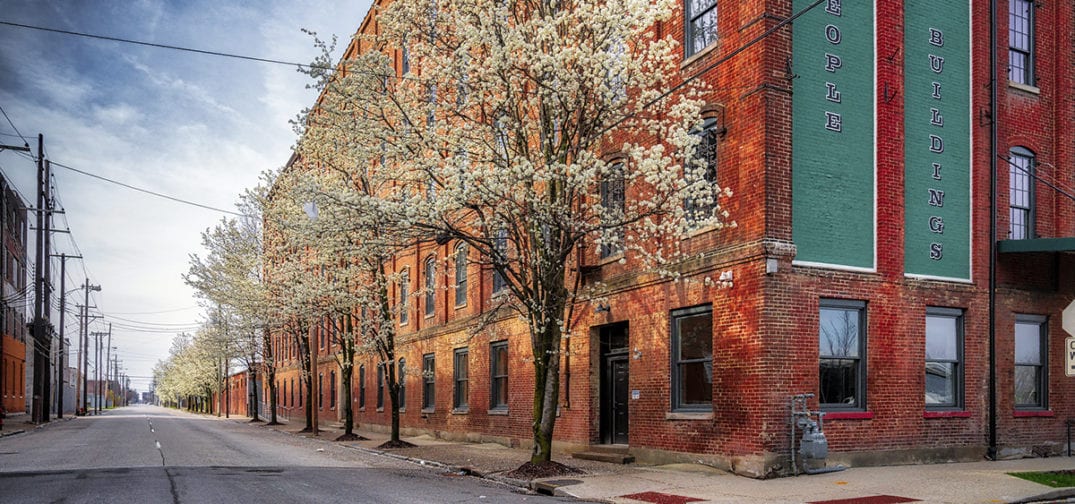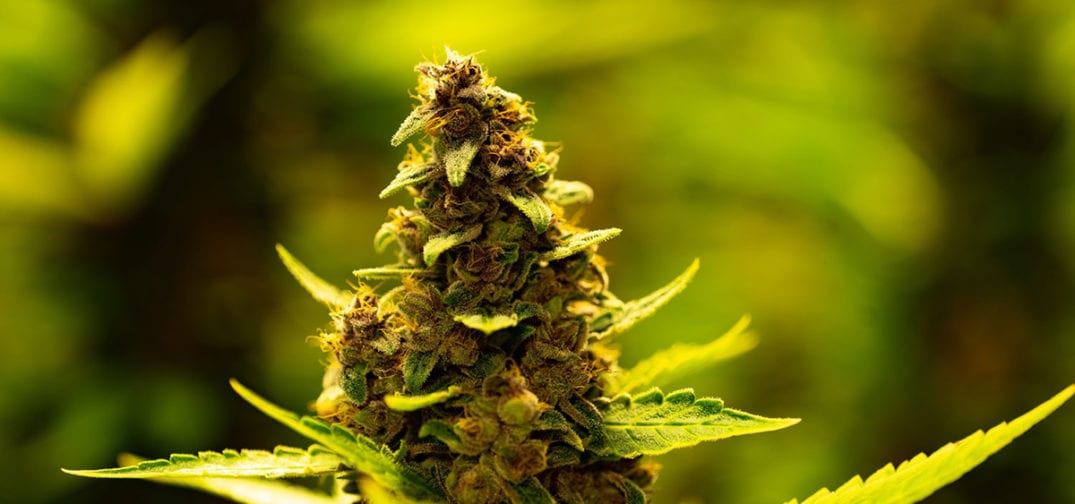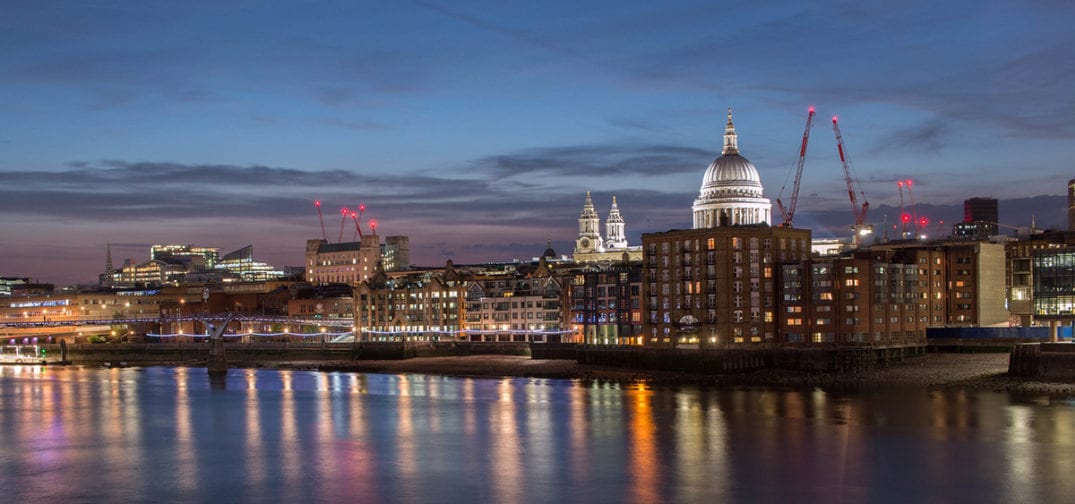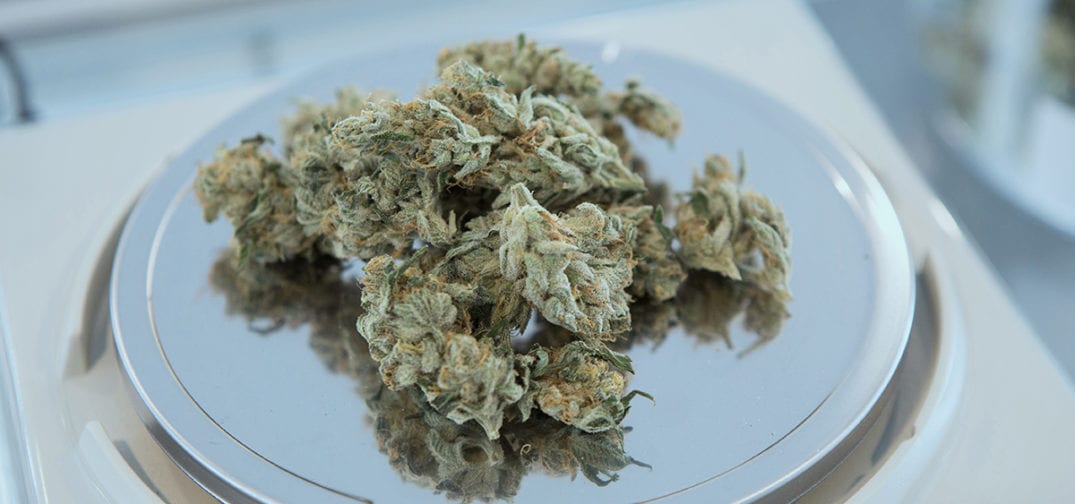Jonathan, who specializes in trademark counseling and brand protection at Knobbe Martens, recently joined our podcast host TG Branfalt for an interview that focuses on what cannabis entrepreneurs can do to protect their brand and other intellectual properties, including specific products and even strains.
In this interview, Jonathan offers advice for avoiding trademark infringement lawsuits, explains the history behind some of the biggest trademark infringement cases in the cannabis industry, discusses the small differences between trademark and copyright law, and more.
Tune in via the media player below or scroll further down to read along with a full transcript of this week’s Ganjapreneur.com podcast episode.
Listen to the podcast:
Read the transcript:
Commercial: This episode of The Ganjapreneur Podcast is made possible by 420-friendly service providers in the Ganjapreneur Business Directory. If you need professional help with your business from accounting to legal services to consulting, marketing, payment processing or insurance, visit ganjapreneur.com/businesses to find service providers who specialize in helping cannabis entrepreneurs like you. Visit the Ganjapreneur Business Directory today at ganjapreneur.com/businesses.
TG Branfalt: Hey there, I’m your host, TG Branfalt and thank you for listening to the Ganjapreneur.com podcast, where we try to bring you actionable information and normalize cannabis through the stories of ganjapreneurs, activists and industry stakeholders. Today I’m joined by Jonathan Menkes. He’s a California-based trademark attorney with Knobbe Martens. Johnathan’s practice includes domestic and foreign trademark selection and clearance, trademark audits, unfair competition, false advertising, and notice and takedown procedures involving copyright and trademark claims. How you doing this morning, Johnathan?
Jonathan Menkes: I’m doing terrific, thank you so much for having me. I’m really excited to be here.
TG Branfalt: I’m delighted, man, I love having attorneys and lawyers, very bright specialists on the show. So this isn’t something that we’ve discussed before but before we get into your expertise on trademark law, tell me about yourself, your background, how did you end up serving cannabis clients?
Jonathan Menkes: Great question. It’s fairly interesting because I represent a number of clients in different industries, fashion and clothing, food and beverage, medical devices, among many others. And one day a few years ago I had a dispensary locate our service, a client that needed our assistance with trademarks and brand protection, and it just so happens that company was Weedmaps, which you may have heard of.
And frankly, it just was a snowball effect from there where once you represent one player in the industry, your name gets out there, word gets out. Hopefully you do a good job for people and they appreciate that, and then they just start calling or emailing and so it’s been fantastic. So that’s been a few years now since I got that first call, but it’s just been a fantastic journey ever since.
TG Branfalt: So it doesn’t sound like something that you went to law school sort of in the back of your mind you wanted to serve this space. What interested you most about this sector?
Jonathan Menkes: It’s a great question, and on that point I might just note it seems law schools nowadays are beginning to offer cannabis classes. I didn’t have such a class offered when I was taking classes back in law school, way back when. But it’s so interesting to me because there’s so much unknown. Certainly we know trademarks and we know it very well, but there are certain unique aspects of trademarks in the cannabis and CBD space that aren’t present in other industries, and I’m sure we’ll great into that later.
But the nuances, the gray areas, it’s all very exciting because there are very little answers and lots of questions. And it’s really enjoyable for me as a practitioner to work with clients, figure out where they are in the space. Do they have an established trademark portfolio, are they just beginning, and work with them through that journey. And that’s what’s most exciting to me is walking with them, figuring this out as we go. Like I said, there are certain things we know for sure in trademark law, certain standards if you will, but there’s so much unknown that that’s where I think it’s most interesting to me.
TG Branfalt: So you mention that they don’t teach cannabis in law schools. This is something that is also the case in medical schools and other really advanced education systems. What do you think it’s going to take to bring these classes to the masses, if you will?
Jonathan Menkes: It’s a great question and I think we’re just starting to see this happen. I met with a professor from UCI School of Law who does offer a cannabis class to his law students, and I don’t know how many law schools out there are offering such a unique program but I think because of the interest… it’s just remarkable how much interest this space generates, and I think even before we get to federal legalization or perhaps decriminalization, more and more people are going to be interested, and that will drive more and more universities I believe to offering more courses and curriculum in this space.
TG Branfalt: So tell me about some of the cannabis trademark cases. The Tapatio case comes to mind, the Gorilla Glue case comes to mind, both dealt with trademark issues. One was a little more focused on the image, the Tapatio… the copyright image there. But tell me more about what were the issues with these cases, and what were the results?
Jonathan Menkes: Certainly. So we’ll start with Tapatio, and I know I have to give a shameless shout out to one of my colleagues, or two of my colleagues, Johnathan Hyman, Victoria Ellis, they wrote a fantastic article, Stirring the Pot: Recent Trademark Infringement Claims from Major Brands In the Cannabis Field. And I would just point people to that very succinct and wonderful read, and it does show the images in question for the Tapatio and Trapatio hot sauce as an issue.
But with that shameless plug aside, the case really involves people being too cute and too close to the well-known Tapatio branding and the imagery, as you pointed out. And so the first lawsuit was filed against Smoker’s Paradise & More, Inc. It was a design mark that looked strikingly similar to Tapatio’s hot sauce, and Tapatio did not find the joke very funny at all. And so they filed for trademark infringement and trademark dilution by tarnishment, which I’m sure we’ll go into in a bit. And they also filed a second lawsuit against TCG Industries for offering THC infused hot sauce under the mark Trapatio. And there similar claims were asserted, as far as trademark infringement, unfair competition, and dilution.
And it’s a big deal. I think if there’s one takeaway from that particular case is that being cute doesn’t mean it’s okay to do. Certainly defending a federal lawsuit is not inexpensive and it’s not a quick process, and I think the take home there for my clients and for many clients is that you really have to be careful when you’re adopting a brand. You really shouldn’t be looking at well-known brands. I know the Girl Scouts Cookies have filed a number of complaints, if not sending cease and desist letters. Hershey’s is very protective of their brand. And so it’s far better to use your money and resources in coming up with a unique brand on your own that doesn’t look anything like an established brand for a non-cannabis company, because the results otherwise might end up in a lawsuit.
TG Branfalt: So what was the result there? I saw some images that the Trapatio, they took away the sombrero and that still wasn’t enough?
Jonathan Menkes: So there were two different complaints and so with the second one, the one that I mentioned, TCG Industries, there it was interesting because they had a settlement agreement previously entered into. And then when TCG Industries allegedly reached out to Tapatio to say, “We’ve got this new mark and logo, is it okay for us to use this?” Tapatio declined. TCG Industries went forward and then the lawsuit resulted there. I don’t know where they are in the stages of the lawsuit, whether it’s still pending. My sense is that these cases tend to settle, they don’t tend to go very far, but even working on settlement can itself be a very expensive process.
As far as Gorilla Glue, there a settlement agreement was reached. My understanding is there was no monetary payment as part of the settlement. However Gorilla Glue, the name Gorilla Glue had to be changed to something else. For instance, I think it was GG strains, or there was some other mark there that they had to use that didn’t incorporate Gorilla Glue, that it had to be some other unique name.
TG Branfalt: So what I remember writing about this when it was happening, both of these cases, and what struck me about the Gorilla Glue case was that there were no images being used and that you can’t really trademark a strain name, but you can. Can you sort of walk me through that confusion?
Jonathan Menkes: Certainly. So strain names, you can in theory have a trademark for a strain name. So a strain… any product that you have out there, a t-shirt, a medical device, all of these, if you have a trademark which identifies the goods or services of your company from those of another, it serves as a trademark.
And the tricky part is twofold. One is that if you pick a trademark that is confusingly similar or if not identical to a well-known brand, then you can’t do that under trademark law. That’s not permitted.
The second is if someone in particular, or rather everybody refers to a type of product with a specific term. So what do I mean by that? If you have headphones, if you’re a producer of headphones, let’s say they happen to be wireless. You can’t come up with Wireless Headphones as the name of your, quote, trademark, because that’s the generic name for what the product does or is, it has a feature. And so if people refer to wireless headphones, they don’t think of any one brand, they think it’s just the type of product that it is. By contrast, if you have Bose headphones or Apple earbuds or something that is a trademark, a source identifier, that’s where you have trademark protection.
So to the same extent with strain names, I can see a situation where a person comes up with a specific strain, they protect it and consumers understand that perhaps it comes from one specific source. But if it does not come from a specific source, if many people are producing it, there’s really no policing going on by the brand owner, then it’s really open to the public and it’s become what we call in trademark parlance a generic term.
TG Branfalt: So let’s stick on Gorilla Glue for a second, there’s sort of a lot of discrepancy within the space about calling strains Gorilla Glue say in Oregon compared to California, right? They say that they might call it Gorilla Glue, but it doesn’t have the same sort of genetic makeup. So how do you go about proving that you have the actual product when it comes to strain names?
Jonathan Menkes: So that raises an interesting question, rather, of consumer deception. If a consumer assumes that a certain product has a certain makeup or if it’s a strain name and it creates a certain feeling when used, then that’s one thing. But then if you call it… I guess Gorilla Glue might not be the best example because it’s the trademark owners name, but if you call it something else and it doesn’t those qualities that seems to be a different problematic use for the consumer who has an expectation that it has certain qualities or characteristics when it doesn’t. It’s sort of a type of fraud, if you will, unfair competition, and a number of states have their own unfair competition laws. And trademark law does allow for that, where you’re unfairly claiming to have a product that bears certain characteristics when in fact it does not.
TG Branfalt: Okay. So why don’t you tell me about a couple of the cases that you’ve worked on, walk me through maybe something that you’ve defended or the process of trademarking something.
Jonathan Menkes: Certainly. So one of the projects or types of projects that I come across with some regularity is, someone comes up with a brand name. It doesn’t have to be for product, oftentimes it’s a clothing line or they have stickers or decals that promote the particular brand in question. And so one of my tasks is to see is someone else using a similar trademark for similar products or services, and doing what we call a clearance search.
And so you look at various databases. We have third-party databases that we commission to review searches and we see, okay, this other party is in this different space, we either do or do not think it’s going to cause an issue down the road, and then we counsel our clients on the results of that. Whether they should move forward, maybe they should add a few other terms to the trademark to distinguish it so they reduce the risk that they will see an issue going forward.
So that’s one type in the trademark space. Separately in the copyright space, which hopefully we’ll get to chat about that a bit as well as a few other forms of intellectual property that I think every brand owner should be aware of, is copyright law. So one project that I think is pretty interesting that I’ve been working on with some of my colleagues as of late is clearing copyrights. So copyrights, unlike trademarks, protect a little bit… it’s a different bundle of sticks, if you will. Copyrights prevent copying of imagery, of music, of sounds. It doesn’t really matter who’s producing it. It really matters just whether the two images or sounds or music in question are known as being substantially similar.
And the interesting part about copyright law is while it typically prohibits someone from copying it without authorization, there’s certain exceptions. You may have heard of the fair use defense. There can be certain instances under copyright law where using someone else’s… or clips, rather, of a video, or newspaper or other articles can be deemed a fair use so you don’t need that copyright holder’s permission to use it. And that’s one project I’ve been working on is counseling our clients on the situations in which that may or may not be permissible when a license is not feasible.
TG Branfalt: Is this something that is at the forefront… when you’re dealing with people in the cannabis industry, is it something that’s on the forefront of their mind when they enter the space or do they have sort of an aha moment when they’re talking to you?
Jonathan Menkes: It’s a great question. I would say by and large my clients really value trademarks and brand protection from the get-go. I find myself doing less educating as far as the importance of trademarks and brand protection in the cannabis space as compared with other spaces, interestingly enough. Unfortunately I think there are certain assumptions made about people in this space, but they’re some of the brightest, most innovative people I’ve come across, frankly. And that’s going back to your first question is why I love this space so much, is just how intelligent these people are, they’re business folks, they’re business savvy. These are not what I think some might unfortunately view as seedy people. These are, as I said, business owners that really want to do the right thing and protect the brands, follow the law and do what they can to make sure their company can thrive.
And to me, that’s been very exciting to work with them, to help them grow their brands in an intelligent way rather than just, let me file… whichever trademarks you send my way, I’ll file. I don’t think that’s typically the way these businesses flourish. I think there has to be a targeted approach to trademark protection, and that’s what I enjoy working with these folks in the cannabis space is helping decide what are my most important brands, and how do I go about protecting them.
TG Branfalt: So recently, the US Trademark and Patent Office released some guidance related to trademark copyright issues in the cannabis space. Could you tell me what your take on that guidance was and what it ultimately means for cannabis companies?
Jonathan Menkes: It’s a great question. Unfortunately, I think guidance, and I’m using air quotes here, is pretty unhelpful if you are in the cannabis space. For instance, if the product you’re working with has more than point three percent THC, it’s effectively out from a trademark registration standpoint.
The Trademark Office in the guidelines clarified what I think many practitioners already knew, which is that in order to obtain a trademark registration, the use has to be considered lawful. And lawful use requires that the use does not violate some other area of law and what many examiners have been doing, at least as of the last few years, is citing the Controlled Substances Act as a bar against registration of products that either touch cannabis directly, transport it, conceal it, process it, et cetera. I think there are ways that these products can be registered, but it’s really few and far between and it creates a real challenge for those in the space.
If the product contains less than point three percent THC, the guidance made clear that you could still have an issue, not with the Controlled Substances Act but with the Food, Drug and Cosmetics Act. And so it seems like with the farm bill passage in December 20th of 2018, we thought a lot of the CBD products would be easily registrable, and we just haven’t seen that because now the Trademark Office is now looking too at the FTC, the FDA, and finding that such products in particular in the supplement space are simply not registrable.
TG Branfalt: So what about states? What about in California? Can companies that are licensed, legally operating, do they have rights under any state laws?
Jonathan Menkes: It’s a terrific question. And that’s really a big part of the counseling that we do with our clients is looking at the states where they have legal use within those states and helping them secure state trademark registrations. So California I’m very happy to say has a very robust system in place from filing to registration where they do permit products to be registered. Cannabis products, CBD products. A few exceptions there, it can’t… the design element or the logo cannot be marketed where it would be attractive to children. You can’t have products whether CBD or cannabis that are mixed with alcohol or contain alcohol in it.
So there are a few exceptions there but generally speaking at least in California you can secure state trademark registrations for these products and there are a handful of other jurisdictions that also allow for it. For instance Oregon, Nevada, Arizona, you can get a registration. I believe that one if it’s only for medical use. But in any event, we do counsel clients in the various states that do allow for state registrations and helping them secure products there.
It’s very interesting that we have this dual system. We have the federal trademark system where you can probably get registrations for clothing, for decals, for things that don’t touch the product itself, and then at the state level you can get for products themselves.
TG Branfalt: So forgive me if this a naïve question, but let’s say a company in California has all the state trademarks and then a company in say Massachusetts which has a legal cannabis program violates that trademark. Is there any sort of action that the company in California could take against that Massachusetts company under the state guidelines or is that sort of an in state… would the infringement have to happen in state?
Jonathan Menkes: I love this question. I think it’s a great one. And it raises… this is not unique to cannabis. This happens with some regularity where you have two companies, company A in California and we’ll say company B in Massachusetts. They both started using at different times but they’re pretty localized, what happens?
So we’ll assume for purposes of this question there are no federal trademark registrations, which we should talk about at some point why someone should get or at least apply for a federal registration. But in your hypothetical, it’s first in right… first in time, excuse me, first in rights. So the first person to use the trademark has rights in that jurisdiction or geographical location where they used it. So in your situation if company A only use them within California and company B only use within Massachusetts, then really they would just be coexisting in their separate markets. There would be no claim from A to B or B to A because they’ve only used in those local markets.
Now, it gets tricky when let’s say company A has also licensed right to use their trademark in Colorado, and the Massachusetts company has also licensed the rights to its trademark in Colorado. So then the question might come down to, who was the first to use it within Colorado? Really, it’s a complicated issue, but it really comes down to who was first to us it in the relevant jurisdiction and perhaps a small zone outside of that specific locale would ultimately win. But it’s a great question, I’m really really happy you asked it.
TG Branfalt: So you mentioned that people should file, at least file for federal protection, but earlier you said said that you’re not really going to have a whole lot of luck at the federal level because cannabis is schedule one, that whole thing. So why make that application if it’s going to get denied?
Jonathan Menkes: Terrific. So, I think we need to make a distinction between what we’re filing for. And so it can be tricky if you file for a cannabis-related product, you’re almost certainly not going to get it federally registered, but if you are a brand owner presumably you have hats, clothing, other paraphernalia if you will to support your brand. And that, because it doesn’t contain cannabis products, can be registered at the federal level which is often ideal.
And so we counsel our clients in obtaining federal registrations for as I’ve mentioned clothing, decals, stickers, lighters, perhaps lanyards, as well as website services. If you’re providing a website that has information on perhaps the legalization of cannabis, I think I would rather have that than nothing when trying to assert it against a third party. And so while we’re on the subject of why bother with federal registration, it confers a few important things that people should consider.
So first is, if company A that we talked about in your previous hypothetical files a federal registration let’s say for clothing, let’s say they’ve only used in California and Nevada. Once they secure registration for that clothing, it’s as though they’ve used in every single state in the US including Massachusetts when they haven’t. And so that’s a pretty massive benefit because now they don’t have to prove use, it’s presumed that they have already used it there. So that’s one benefit.
The second benefit is now you have the Trademark Office acting as a mini police force for you, if you will, because they monitor…well, they review every application that comes across their desk and they will look to see if there’s some other registration or application that would bar a new application from registering. And so you have the added benefit of the Trademark Office basically adding as a first stop gate with people trying to register marks that are confusingly similar to what you own. And you have certain statutory presumptions with a federal registration that you don’t get without a registration, so for instance that the mark is valid, that you own it, that it’s distinctive. These are all important features that you would otherwise have to prove in court if you did not have a registration.
So I think there’s real value there that most of my clients I think appreciate. I’m very fortunate that they appreciate that, and it’s very fun to work with them to see what other products we can help them protect. And I don’t want to say we like to see how close we can get, that would not be the intent there, but just to see ways in which we can secure brand protection outside of the core products and services.
TG Branfalt: So what about… I know we briefly discussed strain names earlier, but how do ganjapreneurs protect that strain name intellectual property? I mean, I know that you’ve said that you can trademark clothing and other things that don’t touch the plant, but is there any way to protect intellectual property like strain names?
Jonathan Menkes: Terrific. So I’m really glad you asked this question because it does point to the other areas of intellectual property outside of trademarks that are important to consider. So for instance, patents. Patents traditionally cover useful articles, machines, inventions, improvements thereupon and these might… let’s say they’re atomizers or some other physical product that you have or processes, you can actually get a patent on strains. And I do have colleagues here at Knobbe that have worked with clients in filing for patents on strain names, and so that’s certainly something people should look at.
I think the big caveat there is if someone has been using or publicly distributing, offering for sale this particular strain name for more than a year, then by and large it would be unlikely to be patented because you basically donated it to the public. I would defer to one of my patent colleagues for further guidance on that, but roughly speaking if it’s been out in public for more than a year then you don’t have the option of getting a patent on that.
But perhaps there are other ways of protecting it. Trade secrets is another thing people should consider. Trade secrets are really anything that derives value from being a secret. So you think of Coca-Cola, their recipe’s probably the oldest trade secret that is out there. Kentucky Fried Chicken, their recipe for chicken is also a pretty famous one that we can say. So trade secrets for customer lists or maybe there’s a process by which you are growing the plant, or there’s some secretive process that you use that you don’t want to disclose to others that might be valuable to protect.
And so that knocks out… we’ve already discussed trademarks, there’s patents, there’s trade secrets and we touched on copyright, which really I think for purposes of the listeners here would be your website, your packaging material, the logo design. All of these things that have an image on them, you should be thinking copyright and the application process is relatively… it is inexpensive, frankly, and the process in the Copyright Office is unlike the Trademark Office because the Copyright Office is agnostic as far as use. So there is no CSA refusal for copyrights, and I think that’s probably one of the most undervalued forms of intellectual property is copyrights because the imagery is so important to branding, and I do think people should strongly consider getting a copyright.
And I will say one further point on that, this comes up with regularity in my practice, I wouldn’t use, or at least I’d be careful I should say, in using a third party to design your logos. Because more often than not, or at least frequently, even though they say they’re assigning it to you and you own the copyright, again I’m using air quotes here for own the copyright, but when we look at these agreements oftentimes you don’t. You look at it and we have to go back and get a copyright assignment from that third party. And the reason for that is under copyright law, whoever designs the website or designs the logo is the author or the owner of that, the exception being if it’s an employee within a company and it’s within the scope of their employment to prepare that website or the graphic designs. Then the company owns it.
But other than that, if it’s a third party traditionally that person owns it or that company outside of your company owns it, and so that is something I think the audience should just keep in mind when commissioning someone to prepare the logo design because maybe you don’t own the rights when you think you do.
TG Branfalt: So how do you prevent that from happening? I mean, do you design it yourself, do you have an attorney make sure that all the Is and Ts are dotted and crossed on the contract?
Jonathan Menkes: Yes, working with competent counsel’s always a good thing to consider. I think make no assumptions that just because someone says you own the copyright that you in fact do. Every case is different and the facts need to be looked at, and I would say even within a company it’s worthwhile for a practitioner to look at the situation involved there because maybe there’s some ambiguity about whether what they designed was really within the scope of their employment. So maybe that employee owns it as opposed to the company. So I think you’re absolutely right, working with competent counsel to think through these issues, to review agreements, or to prepare agreements for these brand owners in advance, at least to consider them thoroughly is really the point of this exercise.
TG Branfalt: So I want to go back for a second when you were talking about trade secrets, this isn’t something that I thought about at all with regard to ways to protect yourself. I’m also not a lawyer, but what’s that process like? How do you file to protect trade secrets?
Jonathan Menkes: It’s a great question. And so you technically don’t file anything for trade secrets. So it’s unlike any other area of intellectual property as far as patents where you have a filing, copyrights and trademarks where you have a filing with a government. Trade secrets you don’t. You just have to prove that you have something that is valuable because it is secret, like I said, customer list or perhaps a recipe. And you take reasonable steps to actually keep it secret. If you posted on Instagram, “This is exactly how I make X product,” you’ve lost it. You’ve donated it to the public. And so I think people need to be careful when they say they have a trade secret, and then if they’re sharing it with third parties non-disclosure agreements are absolutely critical to make sure you haven’t just lost or donated your trade secret to the public.
TG Branfalt: So something else about social media, when I helped a gentleman open up a few head shops a few years ago and he had named them Dab City, and he’d actually gotten a cease and desist from an attorney because somebody had opened an Instagram page a couple of years earlier using that Dab City moniker and they were claiming that this shop had infringed on his copyright because he’d had it longer, he’d had social media. I guess my question is, when you have a social media page, when you start a social media page, is that setting some sort of clock as it refers to trademark and copyright, those issues?
Jonathan Menkes: It’s a great question and I think it does raise a great point in how does social media impact people in the space. What are some issues that come up? I think this could work both ways. I know I have a number of clients who post images for their brand, they promote their brand on Instagram for instance and it’s just how you connect to the consumer. And so I think under traditional trademark law then that advertisement of products on social media could be deemed in certain circumstances as trademark use, and as we talked about the first user technically has the first right or has rights in the trademark there.
But the reverse is also true that you have to be careful when using social media or when people post things on social media. Who are you, are you Instagram or are you the brand owner? And I think each party along the chain of command there, so to speak, has to be cognizant of what’s being posted.
For brand owners, I know this happens with way too much regularity where they file for a product and the trademark examiner will take a look at their website. We never submitted any evidence of their website, we just submitted product packaging, for instance, or something else. And the examiner pokes around and sees, “Oh, you’ve identified something as an herbal product which sounds innocuous enough, but I see that you’re actually selling cannabis because on this Instagram page there are cannabis leaves everywhere, people smoking, it’s very obvious that this is for cannabis products.” And so I think that’s where people also have to be careful with… I understand that you need to promote your brand, but just be warned, what’s out there in the public is out there for everyone including trademark examiners who will and have used whatever you’ve posted against you.
TG Branfalt: So this has been really fascinating, getting the… it sounds really complicated and you learned pretty quickly and on the fly what has to happen, do you think, federal statewide to make this issue less complicated? Is it something as simple as federal action, or can something be done maybe when states pass laws that include language that speaks to this issue, how can we sort of less muddy these waters?
Jonathan Menkes: It’s a great question, it’s an important question. I think if cannabis were federally decriminalized or legalized then I think the trademark practice would be much, much easier than the currently is. The Trademark Office, interestingly enough, once upon a time did allow products that had cannabis in them, I think around 2013 or 14 or so. You can find registrations where it lists something that is pretty obviously cannabis-related, and then there was a change in course. And so I think the easiest thing to now happen would be federal legalization or decriminalization and the Trademark Office going along with that saying, “Okay, it’s no longer not lawful use in commerce so we will no longer be refusing registration on that basis.”
That would certainly make my job easier but I don’t know that it’s going to happen any time in the very near future. But I have heard some inklings that this may be two years or less or so, but who knows who’s right, who’s wrong, only time will tell.
TG Branfalt: So finally, what advice do you have for entrepreneurs either looking to enter the space or who have already entered the space with regard to protecting their intellectual property?
Jonathan Menkes: It’s a great question. I think what I would say is find the sweet spot, and what I mean by that is you don’t want to go overboard with trademark filings or other types of filings, but you don’t want to not protect your core brands. And so I think the key there is to find a great practitioner that you trust, that is reputable, that knows the space and who has worked with clients and will continue to work with clients in navigating these very, very muddy waters. The point I think here is that clients or prospective clients should just really consider what is my core brand, what are my sub-brands, what is my budget and can I get all these trademarks now or do I have to wait a few years until the business grows and then secure these secondary trademarks?
And I think it’s often overlooked that you do have trademark rights just by using. True, it’s limited to only the geographic areas where you have used, but that’s still better than nothing. And so maybe you don’t file for 10 trademarks this year, you file for two. Next year, you file for three. And then as your business grows, you really protect your core brand. So really driving home the point of find the sweet spot of the appropriate amount of protection to really cover your bases without going overboard and blowing the entire budget just on lawyers like myself.
TG Branfalt: Johnathan, I want to thank you so much for coming on the show, taking your time. I know that you are expecting a child any day now, congratulations. So to have you take time out of this Monday to be on the show is pretty great. Can you tell the listeners where they can find out more about you and your practice at Knobbe Marten?
Jonathan Menkes: Terrific. Tim, I want to thank you for having me on this show. It’s been very fun, I love talking about the issues that arise here and thank you for this wonderful opportunity.
Listeners can find me on our website, knobbe.com, that’s K-N-O-B-B-E dot com. Again, that’s Johnathan Menkes. Or they can shoot me an email, johnathan.menkes@knobbe.com. Last name is M-E-N-K-E-S. Hopefully a Google search would reveal the name as well because we have written a bit in the space and so hopefully my name would come up, but I do encourage anyone to reach out if they have questions. I do free consultations over the phone or in person just to see how we can help and hopefully we have the opportunity to work with each other.
So again, Tim, thank you so much and I really appreciate the opportunity.
TG Branfalt: Thank you. Johnathan Menkes, California based trademark attorney with Knobbe Martens. You can find more episodes of the Ganjapreneur.com podcast in the podcast section of ganjapreneur.com and in the Apple iTunes store. On the ganjapreneur.com website you will find the latest cannabis news and cannabis jobs updated daily, along with transcripts of this podcast. You can also download the ganjapreneur.com app in iTunes and Google Play. This episode was engineered by Trim Media House. I’ve been your host, TG Branfalt.
